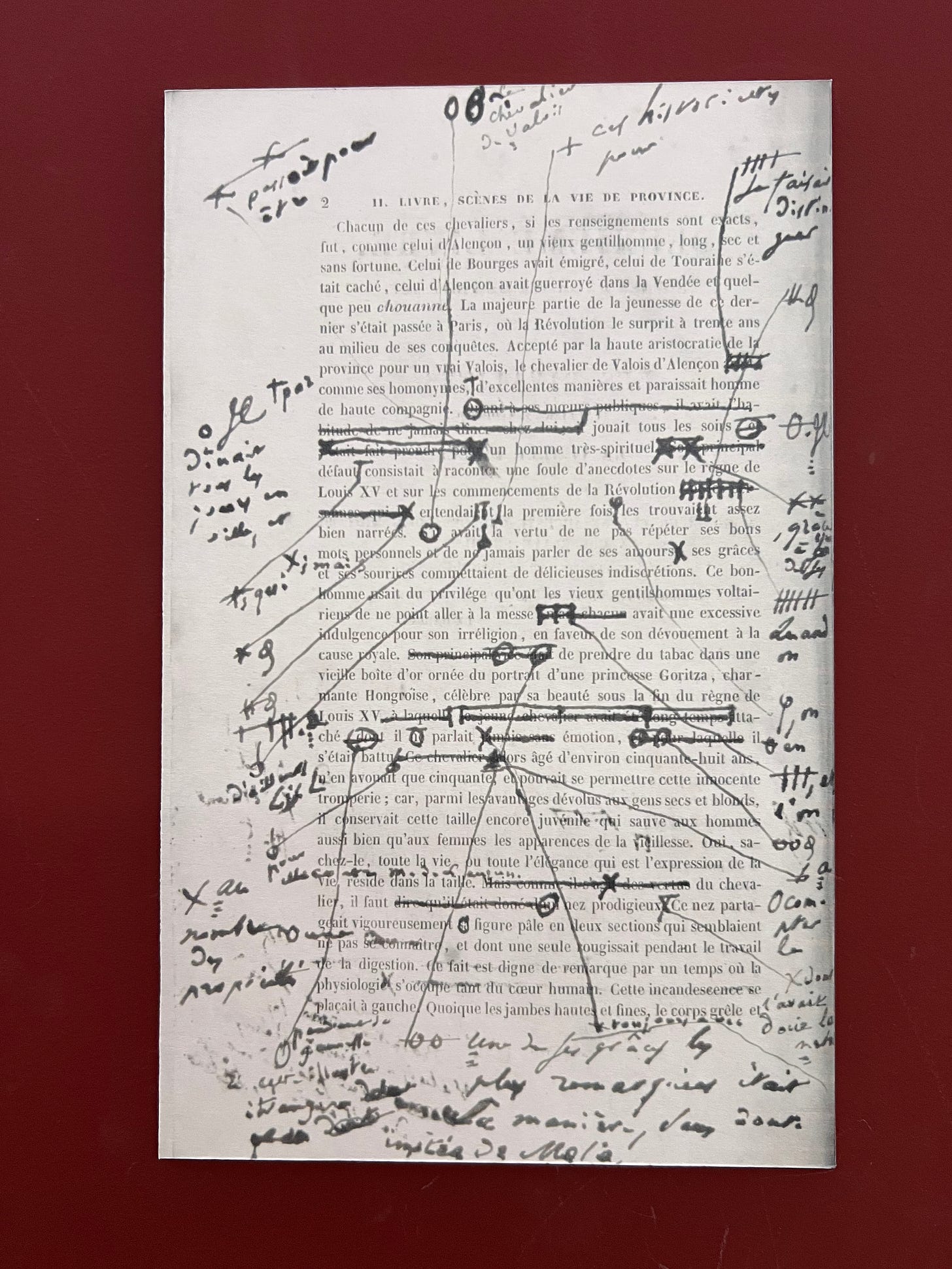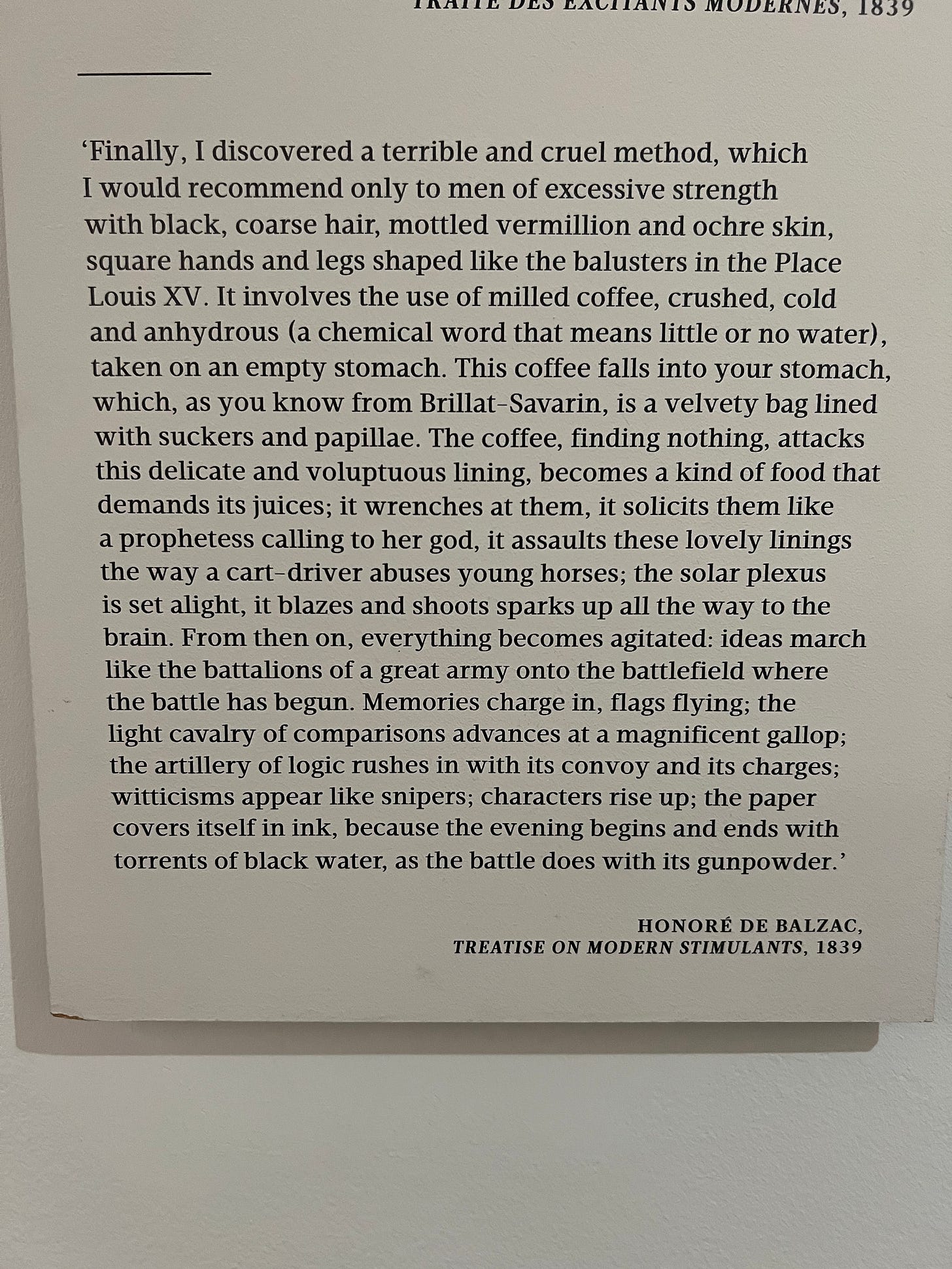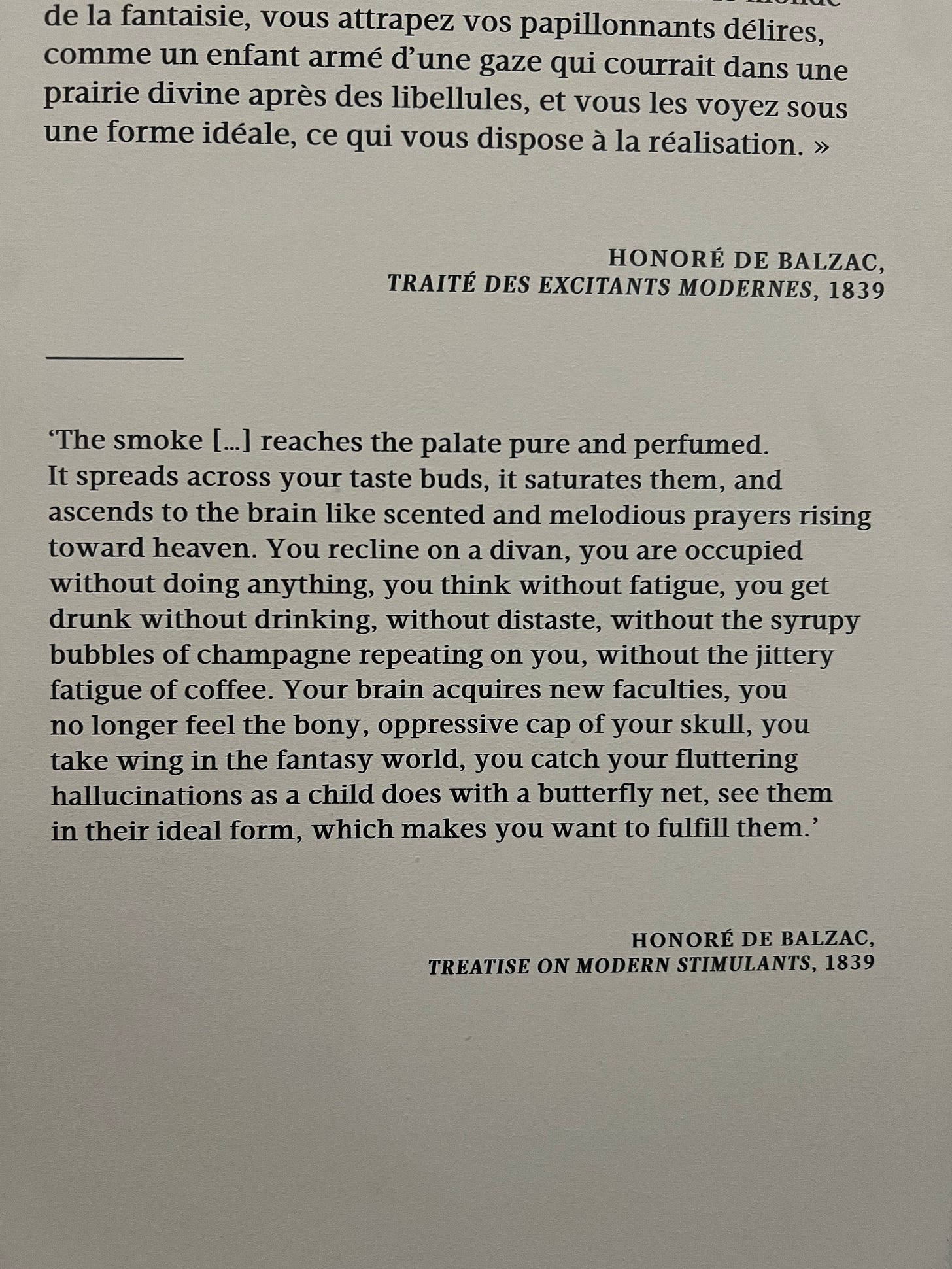How Balzac made me feel joyous (about being a neurotic + a high-chaser)
a visit to a Paris museum and some elevated thoughts on coffee
I’m in a distinctly liminal place right now, suspended between loss and starting things anew. So as to not be cryptic, and to provide background to all the new subscribers here (with some links to subscriber reads), I lost two friends recently. I have also been on a perilous bipolar upswing for several weeks and have now crashed to ground. And at the same time, I am acutely aware I need to move onto what I’m here in Paris to do - write a book (I’ve been granted an artist’s visa (a passeport talent) for such purposes).
So I’m in an exhausted, slightly numb and uncertain in-betweenness.
Which is to be expected. And it’s OK. I’ve been here before. We ride it through and out, and smile at it all.
So on Sunday I did life quietly. My new Paris friend Anna sent me a list of obscure museums to visit that are guaranteed to be nigh empty. I picked one and walked to it. So that I had a Thing To Do.
I picked the Maison de Balzac, the small former mid-1800s home of the writer set on the hillside of Passy (now a beaugoie Parisienne suburb). I mostly went for the fact it has a garden and a cute cafe. Wonderfully the garden was ramshackle and there was a gardener who did a highland skip around the gravel when it started to rain.
But to my equal delight, the museum was both small (I have little patience for large exhibits; I do “speed art”) and featured only the kind of curiosities I’m interested in.
We’ve all heard of Honoré de Balzac, right? He wrote the “novel sequence” La Comédie humaine, an epic work featuring 2000-plus characters. For seven years he decided to live “outside Paris” (the place is now located opposite the Eiffel Tower) in this funny little home where he shut himself off to write at a furious pace. He called his office, one of the five rooms in the house, his “prison” and he’d write from 1 am to 8 am each day, sometimes up to 48 hours at a time with barely a break.
As it happens, Balzac was a notorious perfectionist and fretter. He would handwrite his books (as I do; he with a quill, me with a pacer) and then he’d type it all out. Then…he edited. Any given chapter would be edited - in layers of handwriting - as many as 30 times.

The museum was full of examples of this neurotic level of care. And I just loved it.
I fret over the tempo of sentences. I can spend a week on the first page of a chapter. I can’t not. And yet I feel deficient for it, especially in a world that values short-cutting and “hacking” the bejesus out of everything. I remember listening to Ira Glass tell his This American Life listeners, “Anything any good takes a long time” and feeling like I belonged somewhere in the world. Then I watched The Defiant Ones on Netflix and learned that Born to Run took six months to record; Leonard Cohan’s Hallelujah took 5-8 years (depending on who was counting ). A picture formed for me. And I keep adding to it with little moments like this one at the Maison de Balzac.
In the second room there are quotes from Balzac about his love of coffee and cigarettes from his Treatise on Modern Stimulants.
I mean, have you read anything more playful recently?
I know the surging high he describes. I modulate my coffee intake to access it (I don’t drink it every day so that my body doesn’t build tolerance). What he describes is also not far off how I experience a bipolar upswing. The refined trick, I think, is to be seated and “locked in” when the “cavalry of comparisons” and “sniper witticisms” strike. I’m often not. I’m so very often out and moonwalking (a Mr Squiggle reference) and the momentum is wasted. This Sunday visit was a good reminder to, well, lock myself in going forward.
To write as he did (furiously), Balzac would eat a light meal at five or six in the afternoon, then sleep until midnight. He then rose and wrote, fueled by innumerable cups of black coffee. And, it would seem, fags.
Truth be known, I also smoke about once every five years, for the expansive head spin (and usually only in Paris or Greece). “You no longer feel the bony, oppressive cap of your skull” … has anyone ever described a head-spin better?
I sat in the garden afterwards and it began to spit a melancholy mist. I drank tea (a caffeine modulating day) and read Hannah Arendt’s Lying and Politics, circling quotes and writing in the margins.
It’s wonderful, isn’t it, to have such ready access to the cares and pains of creatives that came before us. That they put the words down on pages for “us” is so generous and a marvel of humanity. As many of you here know, I call it “soul nerding”, this spiritual practice of seeking out the refined, fretted-over words and rhythms of big spirited humans. And it’s a glorious salve to a soul suspended in an uncertain in-between.
Nerd it up lovers,
Sarah x









Being creative is about the process and I believe in the rushed world we live in, the process isn’t honoured as it should be. As a teacher and parent the amount of picture books that come out that are rushed are just not the same quality as the ones that have taken the authors and artists time.
Perhaps we can see a turn around in this as we come to realise over consumption in so many ways doesn’t give us what we really need.
Can’t tell you how much I love this post. Relate 100%, thank you for bringing it to ‘us’.